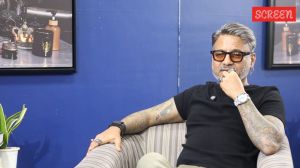Who’s afraid of the Volcker Report?
• Who is Paul Volcker?He is former chairman of the American Federal Reserve, a predecessor of Alan Greenspan. In the early 80s, he was ...

• Who is Paul Volcker?
He is former chairman of the American Federal Reserve, a predecessor of Alan Greenspan. In the early 80s, he was instrumental in guiding his country out of a long phase of double-digit inflation. This is why even today, when he worries — as he did just last week that inflation is going unchecked in the US — it sets off alarm bells.
• What does he have to do with the bribe given to Saddam Hussein’s government?
In April 2004, a year after the America-led alliance invaded Iraq, UN Secretary General Kofi Annan appointed him to head an independent inquiry into possible corruption in the oil-for-Food Programme in Iraq. The Volcker panel, officially called the Independent Inquiry Committee (IIC) into the Programme was unanimously endorsed by the Security Council which through Resolution 1538 asked all member states and UN personnel to cooperate with the investigation.
The two other members of the committee were Mark Pieth, a Swiss expert on money-laundering in the Organization for Economic Cooperation and Development, and Richard Goldstone of South Africa, former prosecutor of the International Criminal Tribunals for the former Yugoslavia and Rwanda.
• Umm, forgive the memory lapse, but what was this Oil-for-Food Programme?
It was a humanitarian intervention aimed at taking the sting off severe international sanctions imposed on Iraq after the invasion of Kuwait in 1990. From 1996, under the Security Council Resolution 986, Iraq was allowed to sell oil under UN supervision. Iraq could sell the oil to whomsoever it chose, the only stipulation being it be sold at a rate fixed by the UN and the money paid be deposited in a UN-controlled escrow account. This money could only be withdrawn to purchase humanitarian goods like food and medicine.
The IIC, in the course of 19 months of investigation, confirmed this arrangement was used by Saddam’s government for political and monetary benefit. Initially, Iraq chose to sell its oil to those who could be well-placed and agreeable in working up international opinion against the sanctions. Members of the Security Council were especially valued, with Russian and French companies being among the biggest beneficiaries. Political beneficiaries in turn sold oil to established oil companies, at a premium.
But, says the Volcker report: “Several years into the programme, Iraq realised it could generate illicit income outside of the UN’s oversight by requiring its oil buyers to pay ‘surcharges’ of generally between ten to thirty cents per barrel of oil. The surcharge policy started in the autumn of 2000 and lasted through the autumn of 2002. Payments flowed mostly to Iraqi-controlled bank accounts in Jordan and Lebanon, as well as by cash deposits to Iraqi embassies in Moscow and elsewhere. The Iraqi regime ultimately derived $228.8 million of illicit income.”
In addition, according to the report, another scheme was devised by two companies in 2001 of “topping off” tankers with additional oil not authorised for sale under the agreement. But a captain of an oil tanker blew the whistle on that.
• So, with Iraq leveraging oil for diplomatic assistance, the Americans must have obviously lost out.
Not quite. Listen to the Committee: “Iraq’s explicit policy of favouring companies from certain countries did not prevent companies from disfavoured countries from obtaining Iraqi crude oil. A substantial volume of oil under contract with Russian companies was purchased and financed by companies based in the US and other countries.” In fact, four companies are accused of cornering a huge share of the oil on offer: Bayoil Supply & Trading Limited, the Taurus Group, Glencore International AG and the Vitol Group. Interestingly, according to The Economist, prosecutors in the US have charged a leading Texas oilman, Oscar Wyatt, of colluding with the owner of Bayoil (USA) Inc, the parent of the Bahamas-based BS&T Ltd, to bribe Saddam into giving them oil.
• Now, where’s the food in all this?
This got the Iraqi regime even more kickbacks, of “more than $1.6 billion”. According to the Committee: “The policy began in mid 1999 from Iraq’s effort to recoup purported costs it incurred to transport goods to inland destinations after their arrival by sea at the Persian Gulf port of Umm Qasr. Rather than seeking approval from the UN for compensation of such costs from the programme’s escrow account, Iraq simply required humanitarian contractors to make such payments directly to Iraqi-controlled bank accounts or to front companies outside Iraq that, in turn forwarded the payments to the Government of Iraq. Not only were these side payments not authorised under the programme, but it was an easy matter for Iraq to impose ‘inland transportation’ fees that far exceeded its actual transportation costs.”
By mid 2000, Baghdad began demanding an outright 10 per cent kickback.
• So what happens to the nearly 140 companies accused of paying surcharges and the 2,253 vendors who paid kickbacks for humanitarian goods?
The UN cannot bring charges against them. In any case, Volcker says some of them may not have known that the payments were illegal. Legal processes can now only be begun by individual countries, who would have to determine what domestic rules and regulations may have been violated.
• What about the UN?
The entire episode has cast grave doubt on the organisation’s ability to execute humanitarian projects and calls for structural and management reform have become more shrill.
• Where can I read more on what Volcker and company have to say?
Go to: http://www.iic-offp.org







- 01
- 02
- 03
- 04
- 05
























